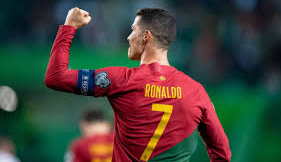Many people will know the Serenity prayer, written by Reinhold Niebuhr, which states: “God, grant me the serenity to accept the things I cannot change, the courage to change the things I can, and the wisdom to know the difference.” Serenity is often seen to come with age and maturity (as well as from God) but so too does senility and someone amusingly has parodied the Serenity prayer in what is known as the Senility prayer: “Grant me the senility to forget the people I never liked anyway, the good fortune to run into the ones I do, and the eyesight to tell the difference.” The fact is, as the legendary actress Bette Davis once famously said, “Growing old is not for sissies.” It is for seniles.
A legendary figure from another field of the Arts, that of literature, Ernest Hemingway, interestingly had something to suggest in that regard when he commented that, “As you get older it is harder to have heroes but it is sort of necessary”. We might wonder firstly why it is harder to have heroes when we get older. It might be a toss-up between the fact that we become more cynical as we get older or we are just wiser in seeing through the aura of heroes to the real person – they are human after all and have their weaknesses and failings. Perhaps it is just that we realise these heroes in our sports fields are no longer bigger than us; they are not older than us; they are not better than us; they may not even be alive anymore! Our childhood heroes have long gone!
Of course, youngsters do have heroes, initially imaginary ones in the form of superheroes but later real ones, especially in the sports world. The superpowers are usually found hidden in bravery, altruism and compassion but traditionally our normal real-life heroes would demonstrate positive values and admirable qualities (such as courage, humility, patience, caring), overcome challenges and stand up for others. Generally, it is fair to say, however, heroes in sport nowadays are not usually chosen on account of their bravery, altruism and compassion; it is probably more for their success, their social media page and their hairstyle (in any order)! Youngsters do look up to sportsmen, as their role models, and aspire to be like them, or rather to achieve their successes and following. When we grow older, such thoughts have faded and we no longer tend to seek heroes.
But then we might also wonder why it is necessary still to have heroes. Having heroes, someone to look up to, can provide inspiration and energy to keep going. Perhaps, therefore, the heroes of an older generation are those people who approach old age with bravery, compassion and altruism, who handle the changing, weakening effects of life’s challenges with dignity, integrity, resilience and perspective. Many might well look to Doddie Weir, the former Scottish international rugby player, and before him, Joost van der Westhuizen, the legendary World Cup winning South African scrum half, who both achieved even greater recognition through their battle to handle Motor Neuron Disease as well as to raise funds for the research into a cure for it.
The real heroes are indeed those who grow old with dignity, hope, determination, serenity and calmness. Hemingway’s protagonist and hero in his most popular novel, ‘The Old Man and the Sea’, was an old man who fished without success for over eighty days and then managed to overcome a huge marlin after a fight lasting several days, only for it to be eaten by sharks before he could return to shore to show to his colleagues. His comment was that “Man is not made for defeat. A man can be destroyed but not defeated”. Such is a hero and such may summarize old age. Elsewhere, Hemingway said “There is nothing noble in being superior to your fellow man; true nobility is being superior to your former self.” That is what makes a hero. That is what we as coaches should aspire to – being better, as a person more than as a coach, than we were previously.
So, what heroes do we (and must we) have as coaches, especially as we grow older? Are our heroes the coaches who have won multiple trophies? Are our heroes any better than those of our children that we might wonder at? Indeed, are we a hero to the children that we coach? As we grow older, the qualities we will look for in our heroes should be serenity, courage and wisdom; serenity not just to have the good fortune to run into the people we do like but to be the ones to whom others, especially the young, will run. Will they find the right qualities in us? As the actor, George Burns, said: “You can’t help getting older, but you don’t have to get old.” Having heroes helps.




